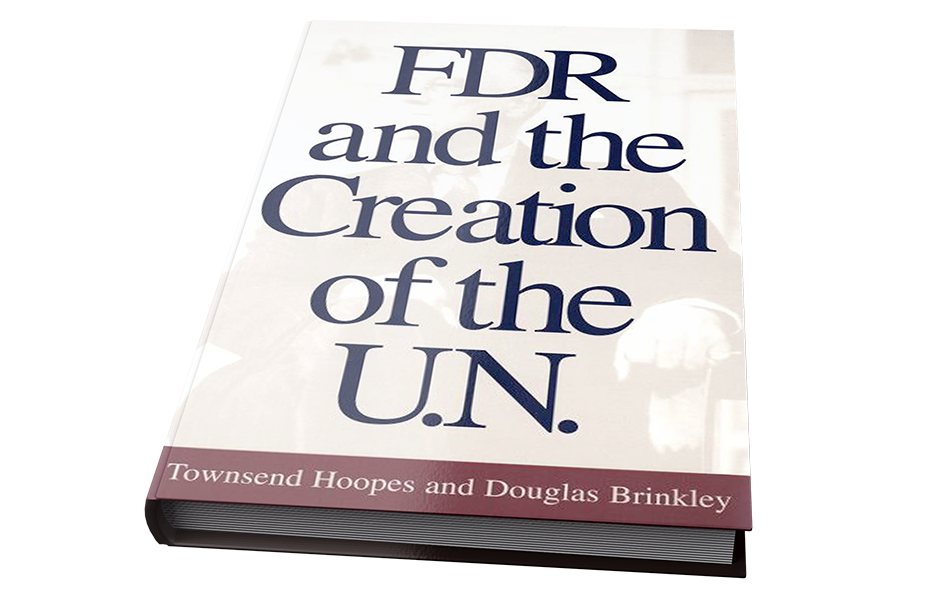By Amazon:
At a time when it is fashionable to declare the United Nations as part of the problem, rather than the solution, to international conflicts, two noted historians lucidly explain how the original objective of the body has been lost among indecision, ideological quarreling, and a lack of clear leadership. In FDR and the Creation of the U.N., Townsend Hoopes and Douglas Brinkley examine the inception of the U.N. and chart its rocky history, identifying FDR as the primary player in the creation of the assembly.
In citing the U.N.’s biggest problems, the authors do not call for disbanding the body. Instead, in keeping with FDR’s original vision, they offer solutions for improvements and insights. The challenges are formidable, however, as even daily operations are stalled due to the debt of $3.3 billion owed by U.N. members. The authors pay particular attention to the United States’ responsibility for international peacekeeping. To make the U.N. effective, they argue, the U.S. must not only pay its share of the debt, but accept the fact that it has the military and political power to create results — if only it chooses to do so.
In recent years the United Nations has become more active in – and more generally respected for – its peacekeeping efforts than at any other period in its fifty-year history. During the same period, the United States has been engaged in a debate about the place of the U.N. in the conduct of its foreign policy. This book, the first account of the American role in creating the United Nations, tells an engrossing story and also provides a useful historical perspective on the controversy. Prizewinning historians Townsend Hoopes and Douglas Brinkley explain how the idea of the United Nations was conceived, debated, and revised, first within the U.S. government and then by negotiation with its major allies in World War II. The experience of the war generated increasing support for the new organization throughout American society, and the U.N. Charter was finally endorsed by the community of nations in 1945. The story largely belongs to President Franklin Roosevelt, who was determined to form an organization that would break the vicious cycle of ever more destructive wars (in contrast to the failed League of Nations), and who therefore assigned collective responsibility for keeping the peace to the five leading U.N. powers – the major wartime Allies. Hoopes and Brinkley focus on Roosevelt but also present vivid portraits of others who played significant roles in bringing the U.N. into being: these include Cordell Hull, Sumner Welles, Dean Acheson, Harry Hopkins, Wendell Willkie, Thomas Dewey, Arthur Vandenberg, William Fulbright, Edward Stettinius, and Walter Lippmann. In an epilogue, the authors discuss the checkered history of the United Nations and consider its future prospects.
Publisher
Yale University Press
Published
March 27th, 1997
Formats and Editions
Hardcover
Paperback
Purchase book at these available locations:
Book Review:
New York Times Book Review: The Unfinished Presidency

